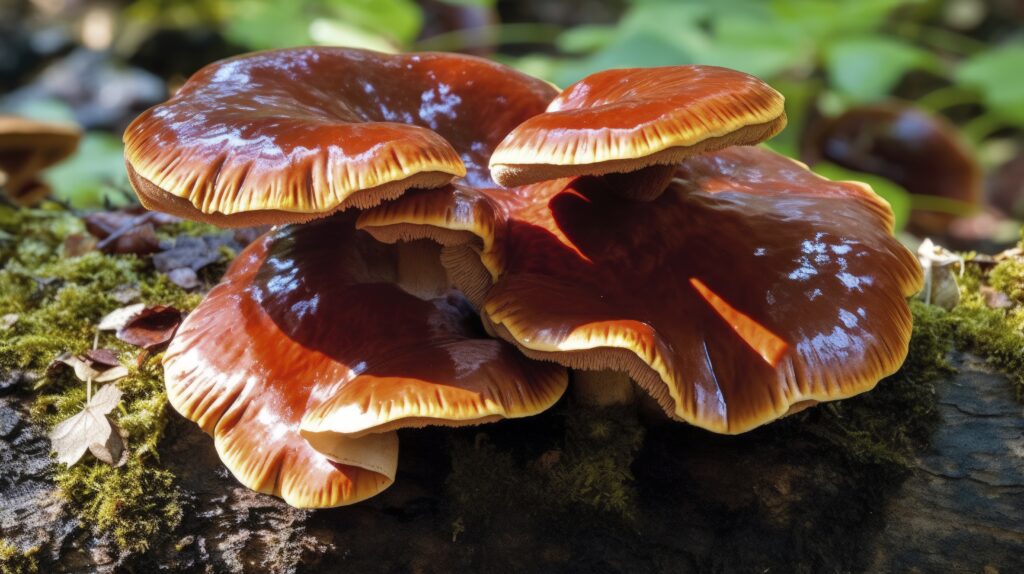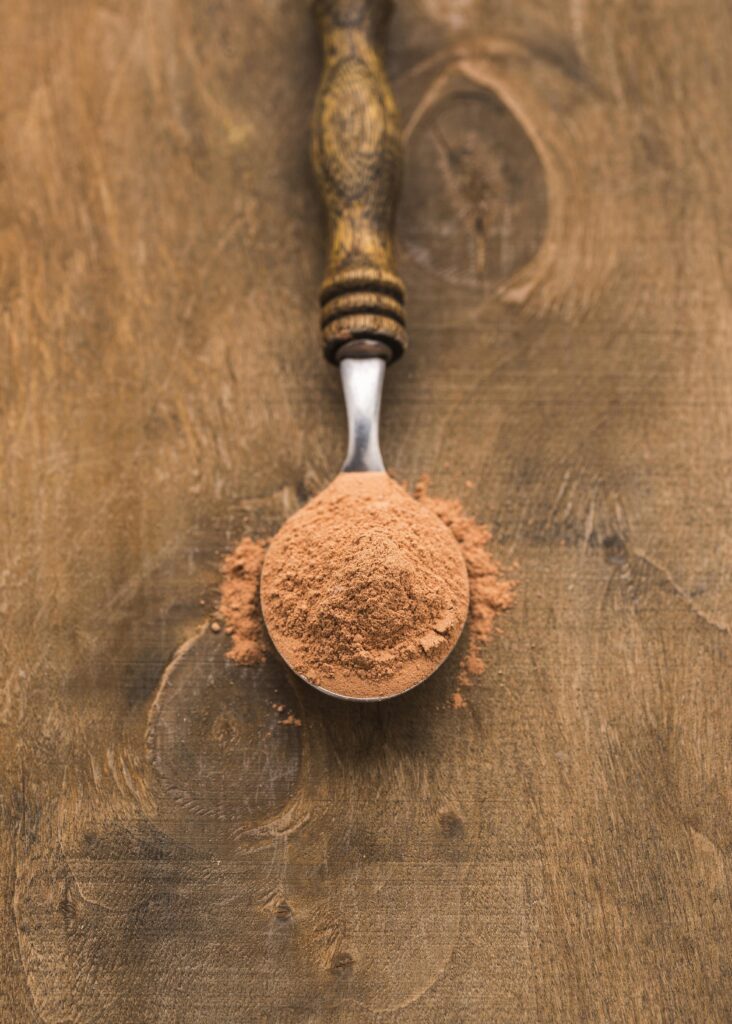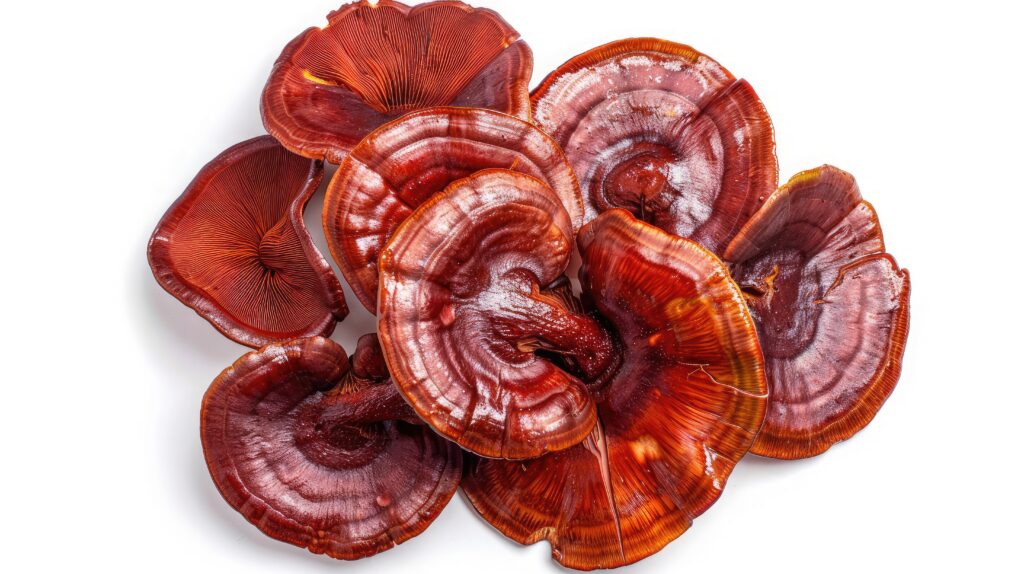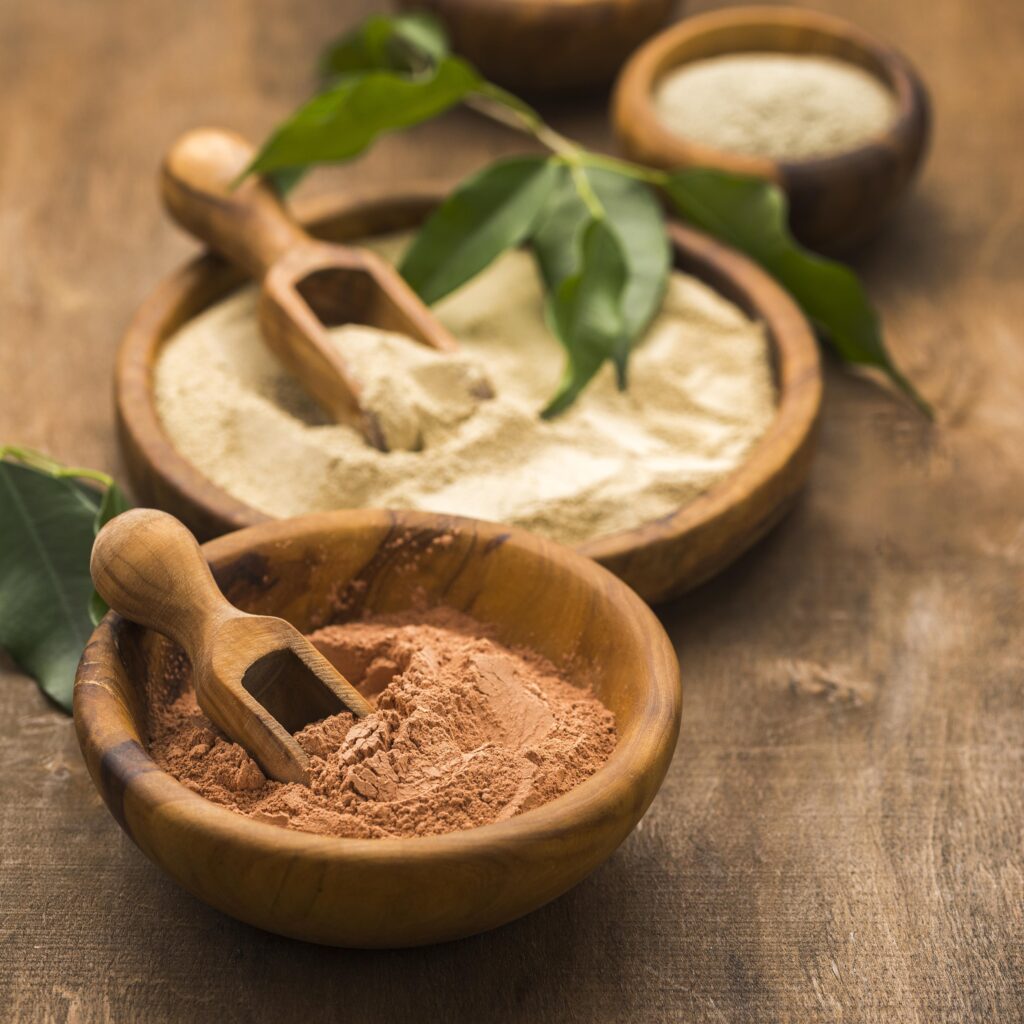Science-Backed Benefits of Reishi Mushroom Powder
- Boosts Immune System Function
Reishi is best known for its immunomodulatory effects. Studies published in Frontiers in Pharmacology and The Journal of Ethnopharmacology show that Reishi polysaccharides stimulate macrophages, natural killer cells, and cytokine production.
✅ Key Insight: Reishi strengthens both innate and adaptive immunity, helping the body respond to infections and chronic stress.
- Reduces Fatigue and Enhances Energy
A double-blind, placebo-controlled trial published in the Journal of Medicinal Food (2005) demonstrated that patients with neurasthenia (chronic fatigue) experienced significant improvements in fatigue and well-being after 8 weeks of Reishi supplementation.
✅ Key Insight: Reishi helps reduce fatigue without the jittery effects of stimulants like caffeine.
- Supports Stress Reduction and Sleep Quality
Reishi has adaptogenic properties, meaning it helps the body balance cortisol levels and adapt to mental and physical stress. In animal and human studies, Reishi showed sedative-like effects that improved sleep latency and quality without impairing alertness the next day.
✅ Key Insight: Reishi can help promote calm and restorative sleep naturally, especially when taken in the evening.
- Anti-Inflammatory and Antioxidant Protection
Triterpenes in Reishi have demonstrated powerful anti-inflammatory actions. They inhibit histamine release and downregulate inflammatory cytokines like TNF-α and IL-6.
Additionally, Reishi’s antioxidant activity helps combat oxidative stress, which plays a role in aging and chronic diseases.
✅ Key Insight: Reishi may help with inflammation-driven conditions like arthritis, asthma, and neurodegeneration.
- Potential Anti-Cancer Properties
Reishi has been studied for its anti-tumor effects due to its ability to modulate the immune system and induce apoptosis (programmed cell death) in cancer cells. Clinical studies have shown immune enhancement in cancer patients undergoing chemotherapy or radiation therapy.
🚨 Note: Reishi is not a standalone cancer treatment, but may be a helpful adjunct therapy. Always consult an oncologist.



